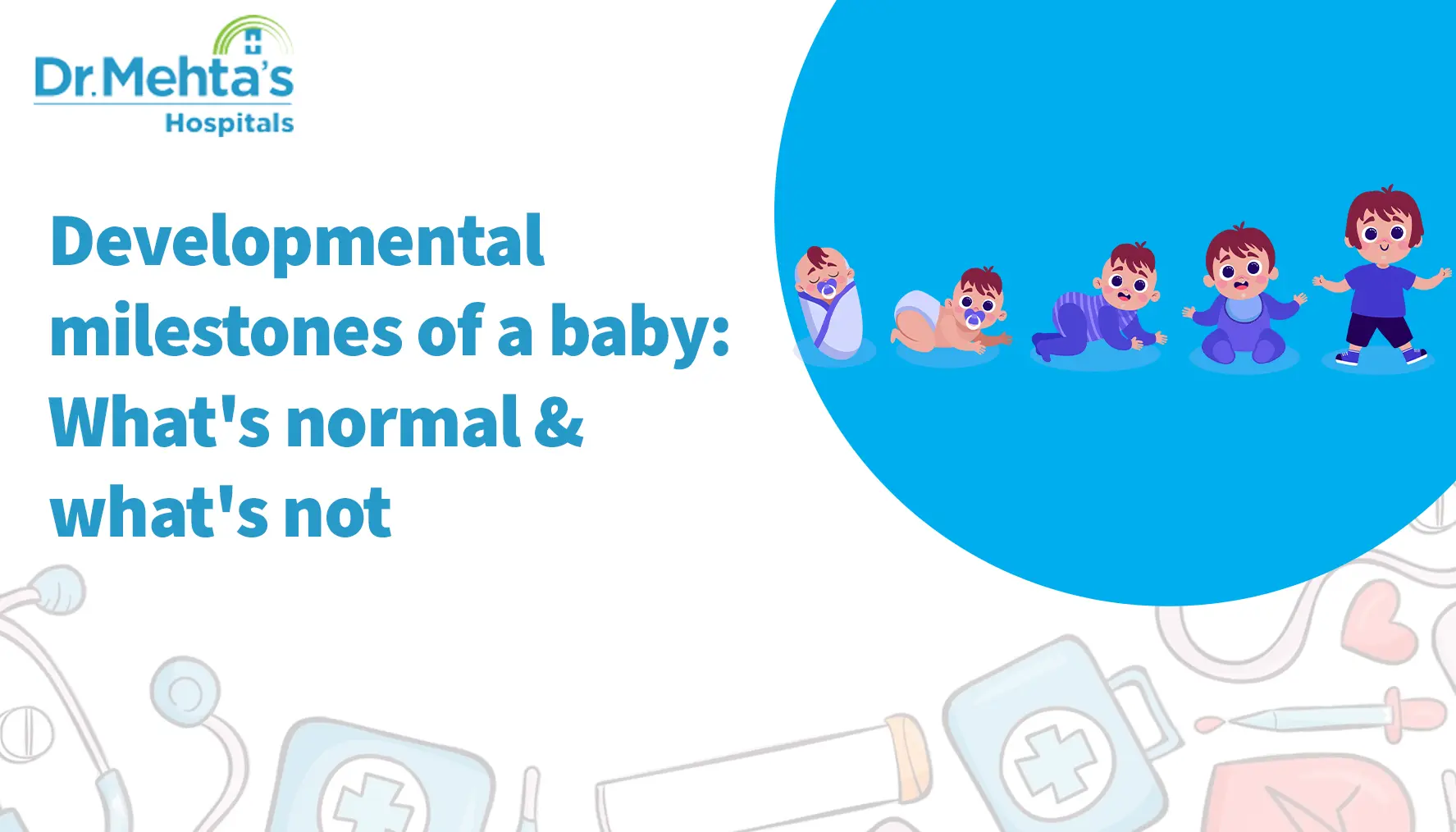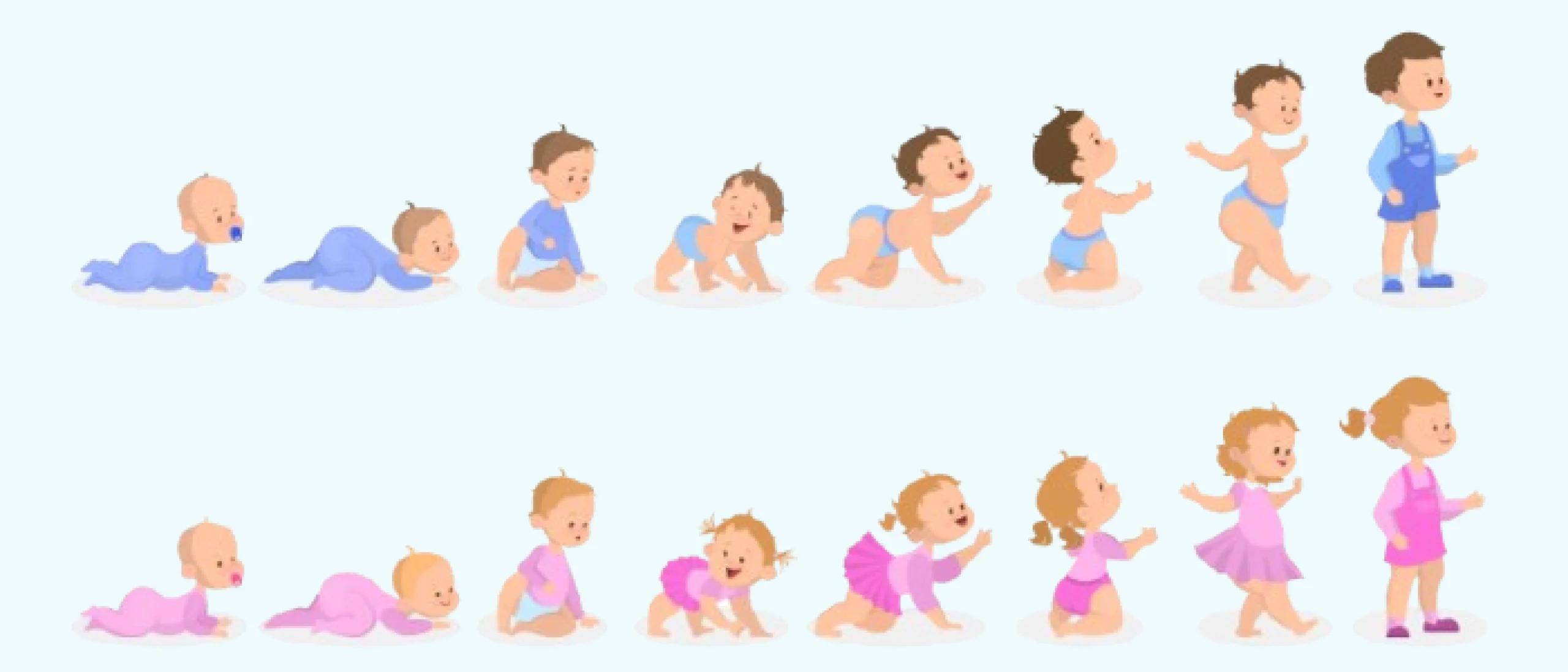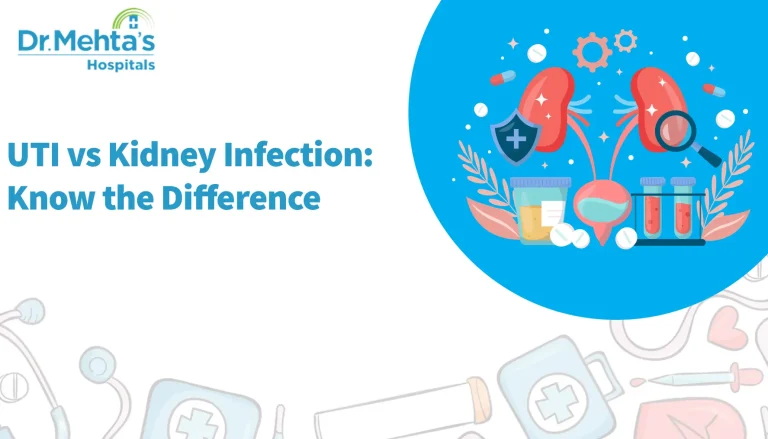Table of Contents

Welcoming your baby into the world is a joyful and deeply transformative experience. As your child grows, each smile, sound, and movement becomes a cherished memory. However, it’s natural for parents to wonder if their baby is developing as expected. Understanding milestones of developments can help track progress and ease concerns about minor delays, if any.
Developmental milestones are age-appropriate skills and behaviors that most babies begin to exhibit as they grow. These include physical, social, emotional, language, and cognitive abilities such as sitting up, smiling, or responding to voices.
It’s important to note that every child is unique and will reach certain milestones at their own pace. Rather than comparing your baby to others, focus on steady progress across key areas of growth.
Understanding the various types of milestones helps parents support their baby’s overall development: physically, emotionally, and cognitively.
This includes raising the head, rolling over, crawling, standing, and eventually walking. According to the World Health Organization, most babies begin walking between 12 and 18 months, though variations are normal.
These involve early thinking and learning skills, like recognizing familiar faces, responding to names, and showing interest in toys.
Babies begin to engage emotionally by making eye contact, smiling at caregivers, and reacting to unfamiliar faces.
Communication begins through cooing, babbling, facial expressions, and simple words like “mama” and “dada.” Even in medically complex cases, such as those treated in our pediatric intensive care unit, language development is supported through responsive, caring interactions.

Here’s a brief overview of what most babies may achieve during the first six months of life:
During the first year, a baby’s brain grows rapidly. Regular conversations, singing, and reading aloud can significantly support brain development and build early communication skills.
Encourage:
While some babies may reach milestones early and others take more time, you should consult your pediatrician if your baby:
According to UNICEF, nurturing care, such as touch, talk, and play, during the first 1,000 days significantly boosts brain development.
To support your baby’s growth:
These regular visits help monitor your child’s growth and ensure timely support when needed. At Dr. Mehta’s Hospitals, our expert pediatric care ensures comprehensive developmental support for every child.
If you’re concerned about your baby’s development or feel something may be off, don’t hesitate to consult a pediatrician. Early diagnosis and timely intervention can make a significant difference.
Every child follows a unique developmental path. While milestone charts offer helpful guidelines, your intuition as a parent is just as important. For any concerns, your pediatrician is your best resource. With love, attention, and timely care, your baby will continue to thrive.
Q1: My baby isn’t crawling at 6 months. Should I worry?
Not necessarily. Some babies crawl later, while others may skip crawling altogether and go directly to standing or walking.
Q2: How often should I take my baby to the pediatrician?
Typically, once a month for the first 6 months, followed by visits at 9, 12, and 15 months, unless otherwise advised.
Q3: Can milestone delays be temporary?
Yes. Minor delays are often temporary and many babies catch up naturally.
Q4: Are developmental delays always a sign of serious conditions?
No. Many delays are mild and improve with early support and engagement.
Q5: Where can I get some expert help for my infant’s development?
Visit Dr. Mehta’s Hospitals to consult with our experienced pediatric team for personalized guidance and support.
Table of Contents
Recent Post

UTI vs Kidney Infection: Know the Difference
About us
Dr. Mehta’s Hospitals is a leading multispecialty hospital in Chennai with over 90 years of excellence. With 400+ beds and 80+ specialties, its Chetpet and Velappanchavadi centers offer advanced, state-of-the-art, compassionate care under one roof.
Chetpet Contact Details
Velappanchavadi Contact Details
Feel free to ask your queries on
Our Specialities
About us
Dr. Mehta’s Hospitals is a leading multispecialty hospital in Chennai with over 90 years of excellence. With 400+ beds and 80+ specialties, its Chetpet and Velappanchavadi centers offer advanced, state-of-the-art, compassionate care under one roof.
Chetpet Contact Details
Velappanchavadi Contact Details
Feel free to ask your queries on
Our Specialities
Quick Links
Center of excellence